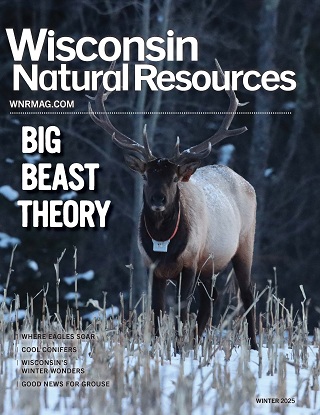Contact: DNR Office of Communications
DNRPress@wisconsin.gov
DNR, Partners Awarded $1 Million To Improve Understanding Of Water Quality, Fish Consumption And Related Health Issues In Central Wisconsin
MADISON, Wis. – The Wisconsin Department of Natural Resources (DNR) today announced the department was awarded a $1 million grant from the U.S. Environmental Protection Agency (EPA), which will be used to improve community understanding of water quality, fish consumption and related health issues for disproportionately impacted communities in central Wisconsin.
The three-year project will focus on both urban and rural communities - including the agricultural community, Hmong and Hispanic communities, and local Tribal communities - in Marathon, Clark, Taylor, Lincoln, Langlade, Shawano, Portage and Wood counties.
In rural Wisconsin, residents often face disproportionate challenges related to access to adequate health care, food access and poverty. Moreover, these areas experience a higher rate of water contamination related to nitrates. And yet, only a very small number of private well owners test their wells for contamination every year. Without testing, private well owners have no way of knowing whether their drinking water is contaminated. Reluctance to test is often due to a lack of information related to the need for testing, testing options or well treatment options.
Additionally, fish consumption advisories are especially important to communities who rely upon subsistence fishing as a means to provide healthy, economical meal options for themselves and their family. Anglers are often not aware of the fish consumption advisories that help limit exposure and compounding health impacts of certain chemicals such as PCBs, mercury and PFOS. For both private well water quality and fish consumption practices, individuals with necessary information can take action to protect their health.
The DNR will sub-award the entirety of the grant funds to two partners based in central Wisconsin: HOLA, Inc. and the Wisconsin Institute for Public Policy and Service (WIPPS), a unit of the Universities of Wisconsin. Those partners will jointly coordinate the Hmong and Hispanic Communication Network (H2N) and Rural Resiliency Network (R2N) to conduct outreach and education on the ground level and facilitate increased private well water testing in rural central Wisconsin, focusing on agricultural households and other groups most in need of assistance.
Where contaminants are found, the H2N and R2N will act as a liaison to the DNR to support individuals with technical assistance for well treatment and replacement and for accessing funds where eligible. The project will provide bilingual outreach where needed.
“This project is particularly important to the Hispanic and Hmong communities because it addresses critical water safety and health concerns associated with their unique reliance on private wells and subsistence fishing, while at the same time recognizing the vital role these communities play in the transformation of rural areas," said Francisco Guerrero, who is the project director for the grant, a program coordinator with H2N, and HOLA Vice President. "Hispanic workers are driving the dairy industry on farms, and the Hmong community is a contributor to the region's produce markets. Ensuring access to bilingual education, well water testing, and assistance in mitigating contamination risks is essential to protect their health and sustain their contributions.”
WIPPS will facilitate community forums for open dialogue on safe water and public health and help train outreach workers. Their research and analysis will be used to develop an effective model for community-based outreach that can be applied statewide and across DNR programs to improve public information sharing and public involvement in DNR services.
The project will run from Oct. 1, 2024 through Sept. 30, 2027. Additional partners, including local health departments, have committed to supporting this project. The Wisconsin Department of Health Services will also collaborate to support the community engagement efforts.
This competitive grant from the EPA (the Government to Government, or G2G grant) is part of the Biden-Harris administration’s historic investment in environmental and climate justice work, including over $30 million of annual appropriations for the EPA to award in grants to benefit disproportionately impacted or underserved communities.
The DNR strives to ensure everyone in Wisconsin has equitable access to clean water, clean air, the natural world and recreational activities to contribute to their health and well-being.
For more information on the EPA’s G2G grant program, visit the EPA's website.

